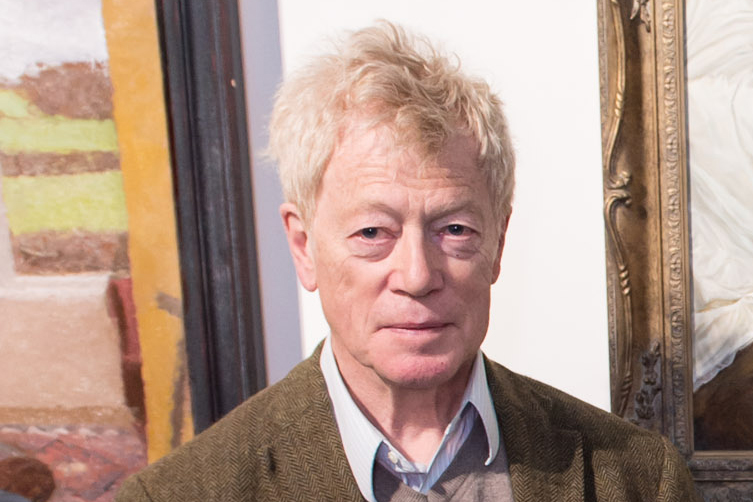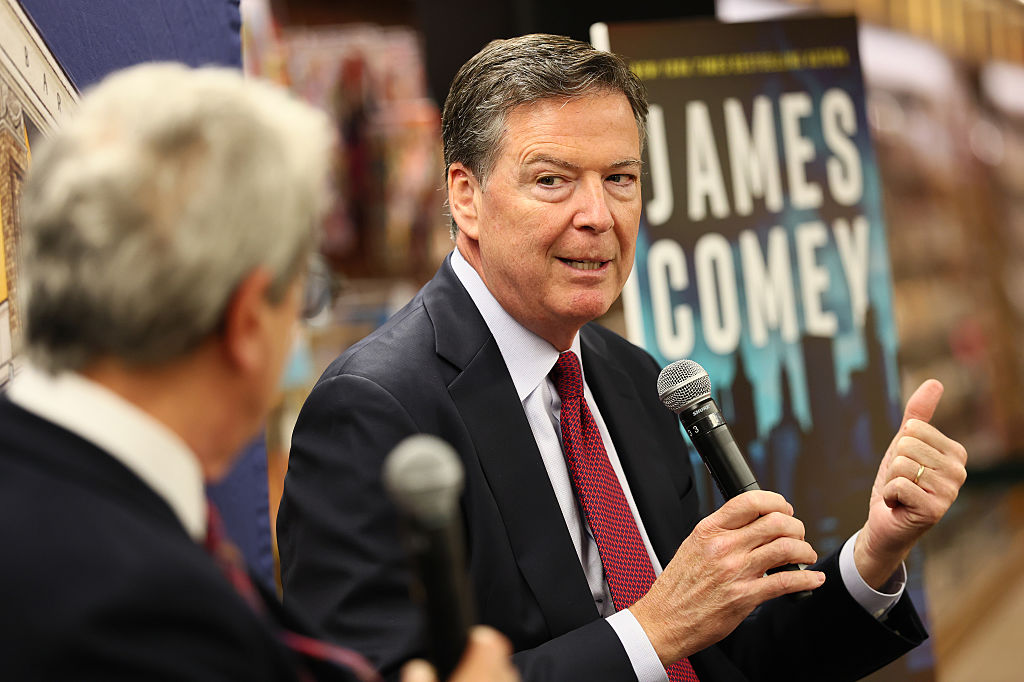‘It’s complete nonsense,’ Sir Roger Scruton told me last November. ‘It’s all fine. It’s only social media, isn’t it?’
We were talking after the British government had appointed Scruton, Britain’s most eminent public intellectual, as the unpaid chairman of the Building Better, Building Beautiful commission. The appointment had unleashed a wave of outrage from the hard left — which, this being the age of Jeremy Corbyn, is also Her Majesty’s Opposition. Scruton was assailed as a homophobe, an apologist for date rape and eugenics, and, in a touching display of interfaith harmony, as both anti-Semitic and an Islamophobic. All of the accusations selectively misrepresented his statements, sometimes to the point of fiction.
Scruton took the philosophical view. ‘Social media has no purchase on real life, because it’s designed to replace real life,’ he said. ‘The whole purpose of it is to recreate networks of human relationships in which reality has no part, so that people can live in fantasy worlds of their own and never encounter the real things like death, starvation, and conflict on the ground.’
On Wednesday, George Eaton, deputy editor of the New Statesman, selectively edited statements from a recent interview to claim that Scruton had made racist statements about Chinese people and about George Soros and Hungarian Jews, and that he made ‘Islamophobic’ remarks about immigrants to Europe. The resulting Twitter frenzy panicked Conservative ministers into firing Scruton from the Building Better, Building Beautiful commission — despite Eaton being obliged to print Scruton’s unedited sentences. As Douglas Murray has described in these pages, this showed that Eaton effectively falsified Scruton’s statements.
Afterwards, Eaton posted a photograph to his Instagram account of himself swigging from a bottle of champagne, with the boastful caption, ‘The feeling you get when you get right-wing racist and homophobe Roger Scruton sacked as a government adviser’. Eaton took the photo down that evening, presumably after discovering a previously unknown sense of shame. But Eaton hadn’t finished his squalid performance. He was not satisfied with an underhand attempt to silence Scruton, a lifelong defender of free speech who was risking his life behind the Iron Curtain before Eaton was even born. Eaton has instructions for the rest of us:
‘There is no context in which it is OK to refer to a “Soros empire” (an anti-Semitic trope).
‘Or to refer to Chinese people as replicas of each other (a racist trope).
‘Or to refer to Islamophobia as a “propaganda word” + Muslim “tribes”.’
These are the diktats of a politically correct ignoramus. Scruton is not alone in rejecting the term ‘Islamophobia’, because it is frequently used by apologists for Islamism to intimidate and forestall debate. Does Eaton believe Maajid Nawaz is ‘Islamophobic’?
The academic literature past and present is full of references to ‘tribes’, some of them Muslim. The tribe remains the social unit in parts of the Middle East and Africa.
Scruton did not refer to Chinese people as replicas of each other. He said that the authoritarian policies of the Chinese government aim to create ‘robots’, and a situation where each person would be ‘a kind of replica of the next one’ — in creative terms, not physical appearance. It is George Eaton who has mendaciously edited Scruton’s quotation to imply that it describes physical appearance. His selective editing says more about his repressed ideas about the Chinese than about Scruton’s.
As for the ‘Soros empire’, a journalist from the New Statesman, a magazine that defends the anti-Semitic Jeremy Corbyn and demonizes Israel, telling us what is and isn’t anti-Semitic is like David Duke giving advice on how to talk about African Americans. It is a fact that Soros is not just a businessman, but a political force in Hungary, and a major donor elsewhere. There is nothing inherently anti-Semitic in criticizing Soros’s role in Hungarian politics, or the partisanship of his funding. Nor can Scruton’s opinions on Hungary be compressed into the simple antagonism that Eaton has invented.
In 2016, Scruton defended George Soros by petitioning Orbán’s government not to close the Soros-funded Central European University. Scruton has called the creation of the university ‘an initiative for which George Soros deserves credit’.
In a 2013 lecture, ‘The Need for Nations’, Scruton specifically criticized Hungarian anti-Semitism, and noted that ‘indigenous anti-Semitism still plays a part in Hungarian society and politics, and presents an obstacle to the emergence of a shared national loyalty among ethnic Hungarian and Jews’.
In a Hungary Today interview in 2017, Scruton identified a positive function of Hungary’s Soros-funded NGOs: they serve, he said, as ‘an unofficial government, a compensation for the lack of opposition in parliament’. In the same interview, Scruton criticized Orbán as ‘an illiberal democrat’.
In the 2013 lecture, Scruton explained the Hungarian nationalism that drives Orbán’s support, and Soros’s hostility to Orbán, in an analysis touching on Hungarian history and language, and the legacies of the Holocaust and the Cold War. Many of the ‘Budapest intelligentsia’ are Jewish, and thus ‘rightly suspicious’ of Hungarian nationalism. This aligns them with the ‘networks of the Soros Empire’.
It is clear from this consistent pattern of statements that Scruton is not anti-Semitic towards Soros, but sensibly aware of how historical experiences and recurring hostilities map onto current Hungarian politics. It is absurd to hear accusations of anti-Semitism from supporters of Jeremy Corbyn’s Labour like George Eaton and the New Statesman. No one since Oswald Mosley has done more more to make anti-Semitic expression acceptable in Britain than Corbyn and Labour in recent years.
‘If you take one sentence out of context, you can make it look like I’m talking about a Jewish conspiracy,’ Scruton told me last November. ‘That’s what they wanted to do, to accuse me of that sort of thing.’
Accusing someone of being a racist is like asking them when they stopped beating their wife. To protest innocence is to protest too much, for the smoke of outrage is seen to confirm the fire of prejudice within. When guilt in thought is presumed, imaginary networks of malignancy and conspiracy are assumed too. The evidence need only establish whether, like the witches of old, the accused is to be burnt or drowned.
Eaton’s assault on the reputation of a globally renowned philosopher is an act of intellectual thuggery, and the Conservative government’s response is a surrender to the mob. Scruton, a target for the lies and loathing of the left for much of his life, is too much of a philosopher to fall into the trap of defending himself against a false accusation.
‘It’s all political obviously, to embarrass the government,’ he reflected when we last spoke. ‘I’m sure that has made me a target. But remember I’ve been Target Number One since The Salisbury Review. It doesn’t go away. To intellectuals, I represent something dangerous, a threat to the stability of the left. So I think I’m always going to be targeted.’
Dominic Green is Life & Arts Editor of
Spectator USA.

























